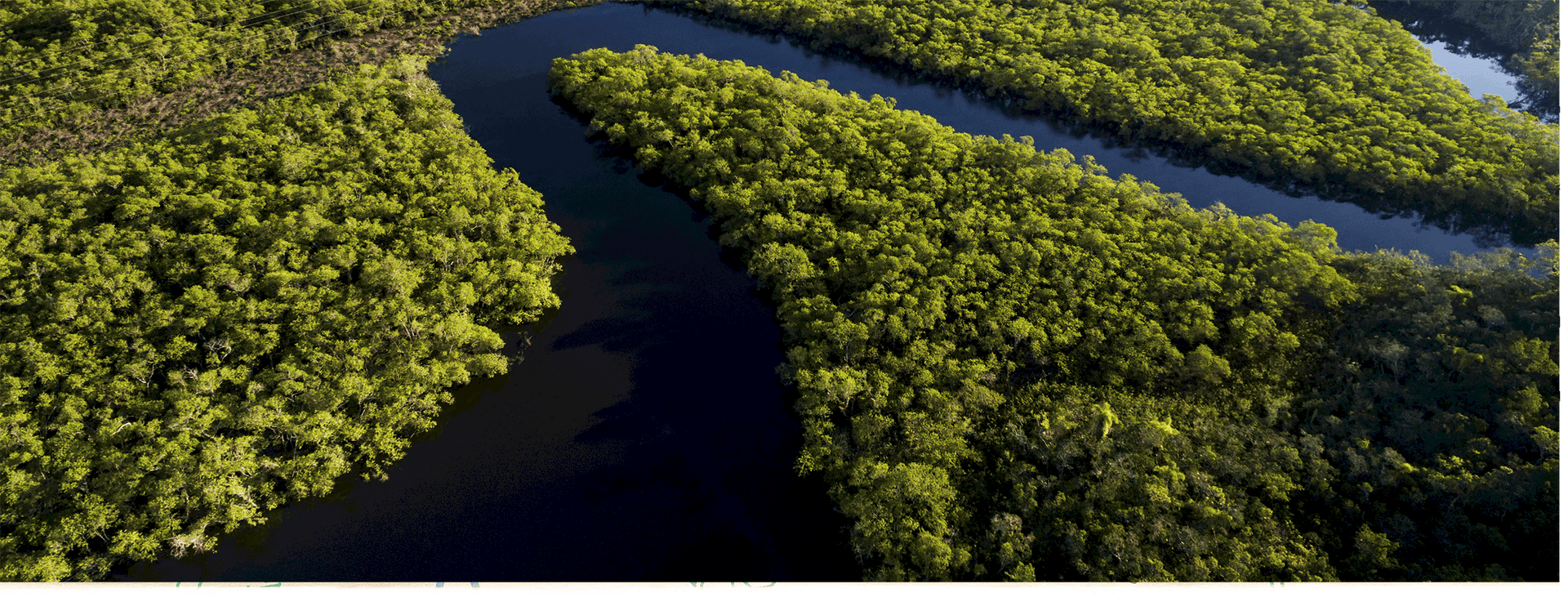sustainability
Why the Amazon Matters
The Amazon rainforest is essential to the survival of our planet. Learn why.
- By Gisela Gueiros
It’s hard to imagine how big the Amazon is. The entire Amazon river basin is actually as big as the lower 48 United States – a huge area that encompasses 2,700,000 square miles. Besides being extremely large, it represents about 60% of the planet’s remaining rainforest. The region includes territory belonging to 9 countries, but the vast majority – almost 2/3—is in Brazil. Unfortunately, the rainforest and the species that live there are at severe risk of disappearing – due to human devastation over the last decades which has destroyed 20% of the forest. It is up to each one of us to help keep the forest standing. Here are 5 reasons why it is important to protect the Amazon.

1. CLIMATE: It helps stabilize the Earth’s climate.
Responsible for creating 1/4 of the oxygen we breathe on planet Earth, trees in the Amazon truly deserve the nickname “the lungs of the planet”. Through photosynthesis, plants remove carbon from the atmosphere and release oxygen back into the air. These trees also create the dense rainforest canopy – which is what blocks the sun and regulates the heat, creating a better environment for animals and plants below, which couldn’t survive otherwise.

2. WATER: It is the source of 20% of the world’s fresh water.
The rainforest helps regulate the world's water cycle. Trees are an essential component in the water cycle, they ground water in their roots and release it back into the atmosphere through respiration. More than 50% of the water in the region is retained within the plants. Tropical forests exchange an extensive amount of water and energy with the atmosphere – a fundamental role in controlling the climate inside and outside the forest.

3. BIODIVERSITY: It is home to almost half of the planet’s known species – from insects to trees.
Roughly, the Amazon is home to more than 5,000 vertebrate animal species, 40,000 plant species and 100,000 invertebrates. It is estimated that there are more than 16,000 species from a total of 390 billion individual trees. That also means that much of the food we eat had origins in this region.

4. MEDICINE: For centuries, humans have used plants and other organisms for a variety of uses.
The Amazon is a famous destination for biologists and ecologists interested in researching and discovering new plants for their medicinal potential. It is so vast, that only 1% of it has been explored by scientists. As the rainforest slowly diminishes, the wildlife also disappears, as well as the diversity that remains unknown. It is a very likely probability that potential life-saving cures for humans are being lost to the deforestation of the Amazon and its impact on species extinctions.

5. CULTURE: It is still home to at least 400 tribes of Indigenous people.
The Amazon has 30 million inhabitants, 1.6 million being indigenous communities. They have their own unique languages and cultural origins. They have lived a balanced life integrated with and taking good care of the forest for generations. The effects of deforestation on local economies can be irreversible – leading to an inability to produce food and forcing locals to move away. And what is worse, it can force them to agree to work in unhealthy conditions and even destroy the forest to make money.

How to help?! #StandWithTheAmazon
Learn and educate people about the importance of the Amazon by sharing the information you just read. Be vocal against deforestation.
Natura is proud to have helped conserve over 635,000 acres of this precious forest through our work sourcing ingredients with local communities. (Learn more about Programa Amazônia.) When you shop with Natura you are helping preserve one of the world’s most important resources.
Together we can protect our planet.




















